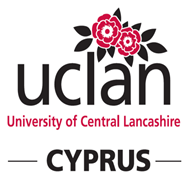
CO2401
Software Development
Important!
Please note that this page is informational, and does not replace the official Module Information Pack (MIP). All students attending this module must carefully read the MIP which can be accessed online via Blackboard.
Logistics
| Module leader: | Nearchos Paspallis |
| When and where: | Refer to the timetable (requires login) |
| Syllabus: | Refer to the Blackboard for the syllabus, assignments, etc (requires login) |
Module content
-
Quality
Quality criteria: meeting user needs, delivery on time, robustness, maintainability
Process and product quality
Standards< -
Software lifecycles
Comparison of software life cycles (including agile and traditional lifecycles) -
Writing a software requirements specification
Role play to elicit requirements from a customer
Interview techniques
Structuring the document based on published standards -
Developing a user interface including:
User needs analysis
Colour, Font, Navigation, Affordance of controls
User error recovery -
Designing an application
Identifying objects
UML (to include use-cases, class and sequence diagrams)
Use of an appropriate diagramming tool
-
Testing
The process of developing an appropriate test strategy
Comparison of testing with reviews and inspections
Black and White box testing
Test harnesses and Function stubs
Test-driven development
Usability evaluation techniques
Learning Outcomes
By the end of the course, students are expected to:
- To develop communication skills to effectively elicit requirements from a customer
- To explore alternative approaches to identifying software requirements
- To emphasise the importance of HCI in the software development process
- To develop a systematic approach to software quality through testing and standards
- To enable the students to compare and contrast software development lifecycles
Resources
Tudor, D.J. & I.J (2010), The DSDM Student Workbook, Galatea Training Services Ltd. ISBN 0954307135
Sommerville, I. (2010) 9th ed., Software Engineering, Addison-Wesley
Fowler, M (2003) 3rd ed., UML Distilled, Addison-Wesley
Preece, J, et-al. (2011) 3nd ed., Interaction Design: Beyond Human-computer Interaction, John Wiley and Sons
Larman, Craig (2003) Agile and Iterative Development, Addison WesleyISBN 0131111558
Many more e-books on software development are available through UCLan Cyprus’ library.
Additional material (including lecture slides and hand-outs) will be available in Blackboard
Collaboration
Students are encouraged to study and learn in groups. However, individual assignments should be the result of their personal effort (unless group work is explicitly asked).
As a principle, you should follow Gilligan's Island Rule: you can discuss assignments with your classmates, but you should not take any notes (electronic or not) from these meetings, in order to be able to fulfil your assignment independently using your own undestanding of the lectures and the group meetings.
General rules
In addition to the general rules of the University, you should also respect the following rules:
- Attending the lectures is mandatory.
- Students should respect the right of their classmates to attend without disruptions or unnecessary interruptions and thus you should not arrive late (or leave early) unless absolutely necessary.
- You are asked to respect the intellectual copyright legislation, concerning copying and using software and books (in electronic or print form).
- Extensions to assignments will not be granted. In exceptional situations, you should consult the Year-1 Tutor.
- Plagiarism is a serious offense. The University uses plagiarism detection software for all assignments and offenders are subject to the University's rules concerning plagiarism. More details about what plagiarism is (and is not) can be found in your MIP, which is available on Blackboard.